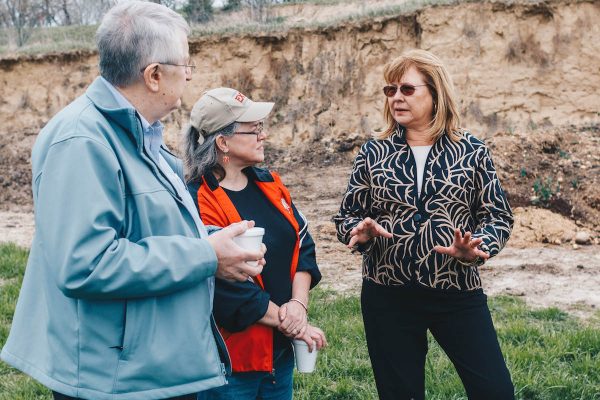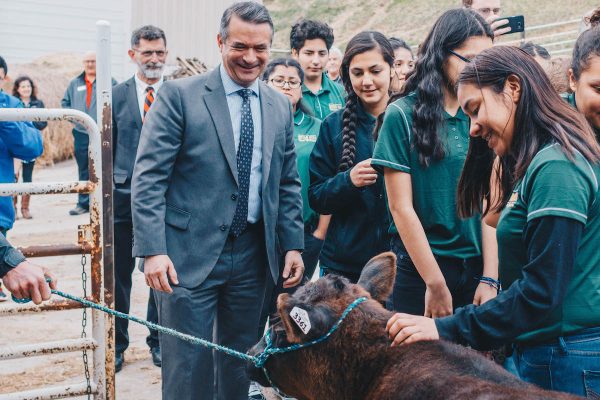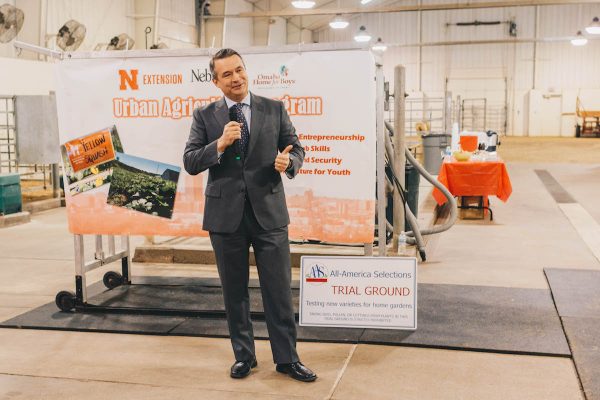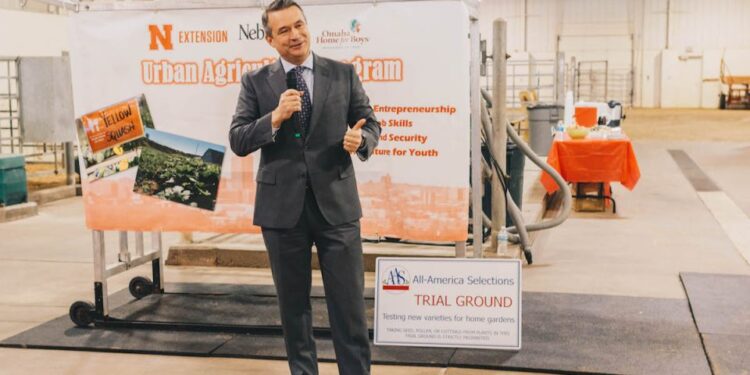People are increasingly moving away from farms and into suburban areas and cities, but a need for farming still exists. USDA Deputy Undersecretary Ann Bartuska and Rep. Don Bacon toured the Omaha Home for Boys’ Cooper Memorial Farm April 12 in support of a new urban agriculture program in Nebraska.
The program comes from a partnership between the Nebraska College of Technical Agriculture, University of Nebraska-Lincoln Extension, and Omaha Home for Boys. Their initiative is driven by a need to produce and market local, healthy food, address food deserts in Omaha, and encourage entrepreneurship and sustainable economic development.
r r
r
Leaders of the organizations joined together for the tour in anticipation of what the partnership will hold. Students in an urban agriculture program from Omaha Bryan High School were in attendance as well, representing the future of agriculture and urban farming.
“This urban agriculture concept is important because, as we consolidate off the farms into the cities, there’s still a demand for agriculture jobs out there, and we need to put people in touch with this vital industry that’s so important to our country,” Bacon says.
Bartuska notes that 80 percent of Americans reside in urban areas.
r r
r
While this number alone is astounding, Ron Rosati Ph.D., Dean of the Nebraska College of Technical Agriculture, shares that the world population is predicted to increase from its 7 billion today to 9 billion by 2050. This expected increase, according to Rosati, is going to require a 70 percent increase in food production—which is why it is important to get young people involved, considering that their generation will need to tackle the task of providing for an increasingly urbanized population.
The students of Bryan High, who boast the largest Future Farmers of America chapter in the state, toured the farm, where they learned more about how the facility operates.
According to student Abril Serrato, the FFA students have access to a hydroponic AgroBox, where they grow tomatoes, lettuce, jalapeños, and more without soil. In the future, Bryan High hopes to start an aquaponics system—which takes the waste from farmed fish and other aquatic animals to supply nutrients for plants grown in water. They also received a grant for a greenhouse.
Bacon refers to agriculture as “a national resource and national treasure that we’ve got to protect,” and stressed the importance of teaching youth about the importance of the field.r
r













